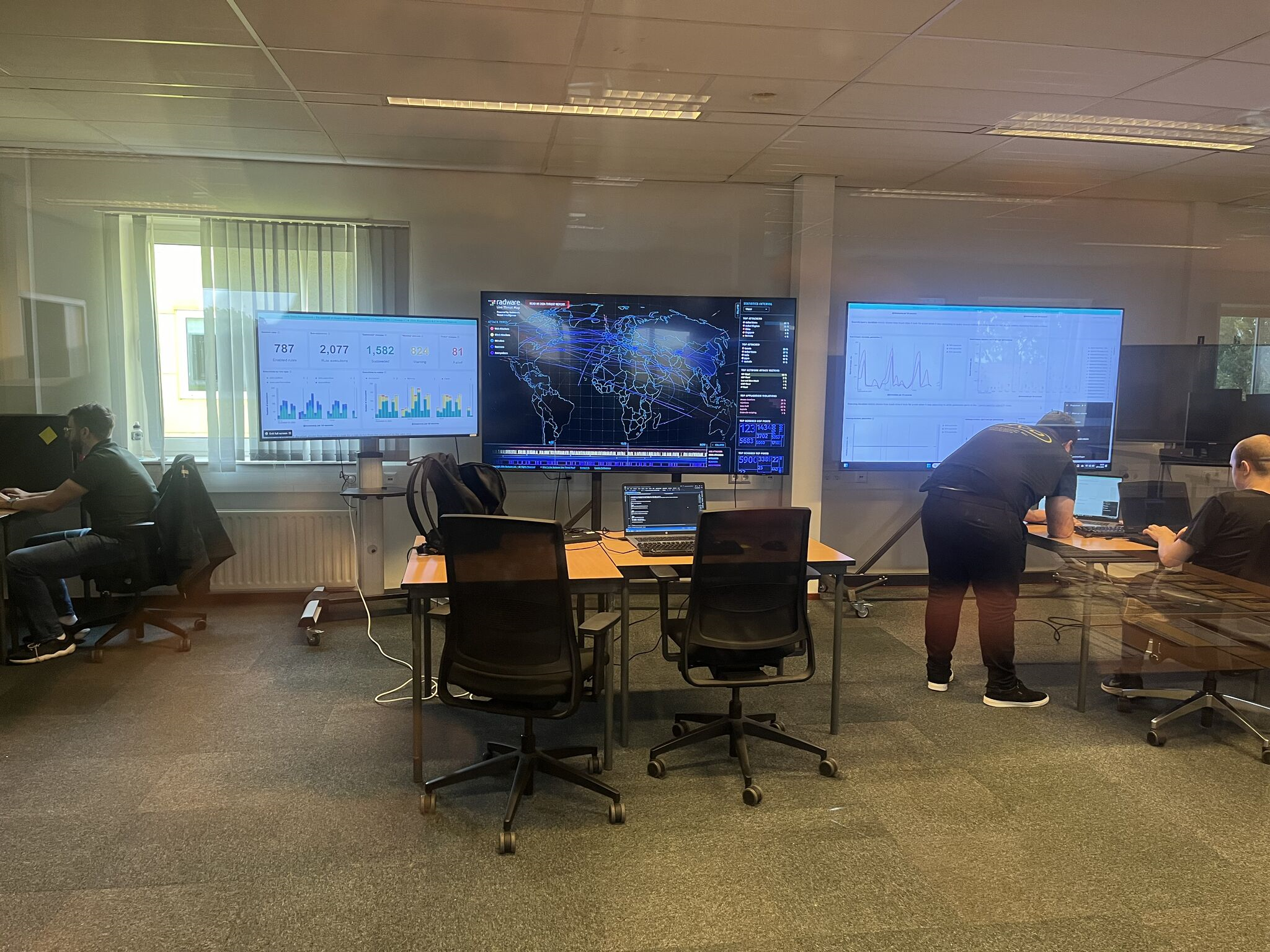Cybersecurity Living Lab: Co-creating Cybersecurity
The Cybersecurity Living Lab is an experimental working environment where students, researchers, companies, public institutions, and end-users collaborate to develop, test, and evaluate new ideas, products, and services...
Centre of Expertise Cyber Security

The Cybersecurity Living Lab is an experimental working environment where students, researchers, companies, public institutions, and end-users collaborate to develop, test, and evaluate new ideas, products, and services in cybersecurity. Through innovative experiments and research, participants gain practical skills in effectively responding to cyber threats and managing risks.
The process is iterative, which means we continuously gather feedback and make improvements. This allows us to develop innovations that really align with users' needs and behaviour in their daily lives. Living Labs often focus on complex societal challenges, with research and sustainability at their core. They promote real-time learning and bridge the gap between theoretical research and practical application. As a result, innovations are more targeted towards actual usability and user acceptance. In the Cybersecurity Living Lab, we create a learning community for cybersecurity with this vision.
What happens in the Cybersecurity Living Lab?
The main components of the lab are:
| Cybersecurity workplace | In the cybersecurity workplace, we work on the future of cybersecurity using the Living Lab concept. We develop new technologies, learning modules, AI tools, and more. |
| Real-time threat monitoring and incident response | Students and professionals learn how to effectively respond to cyber attacks using real-time threat detection, incident response, and cyber risk management. |
| Security Operations Center (SOC) | In the lab, we set up a SOC where students and researchers learn how to identify, analyse, and address cyber threats, similar to how professional cybersecurity teams operate. This not only provides them with practical experience but also the opportunity to conduct research into risk management methods. |
| Applied research | Together with companies, researchers, and students, we conduct research on innovative solutions for cybersecurity. The research themes range from optimizing cyber risk management and studying biases and knowledge transfer to developing shared mental models. Additionally, we explore the co-creation process with end-users, for example in system design and authentication. Finally, our research focuses on decision support, the role of cyber management games, and the use of artificial intelligence as a tool in cyber risk management. |
| Cybersecurity Simulation Lab | In the Cybersecurity Simulation Lab, we develop specific simulations for cyber risk management using AI models. These simulations are used for education, product development, and research. |
| Connection between education and business | The lab works closely with companies to ensure that activities align with the latest security and safety standards, regulations, and technological trends. This keeps education relevant and up-to-date, and allows students to work with tools and data used in real-life situations. |
Who is the Cybersecurity Living Lab for?
The lab is intended for:
- Students from courses such as Cyber Security Technology, Information Security Management, Software Engineering, Integral Safety Management, and similar fields.
- Lecturers with an interest in research and teaching on cybersecurity risks.
- Researchers, postdocs and PhD students.
- Companies and organisations looking to collaborate with the academic world in cybersecurity and Security Operations Centers.
Partners
The Cybersecurity Living Lab is located in the Dutch Innovation Factory: the ICT clubhouse of Zoetermeer and its surroundings. We collaborate with various partners, including mboRijnland, Pinewood, Infinity IT, Rapid7, SURF, Cyberweerbaar NL, TAPS BV, Allianz, the Human Factor Lab, TAPAEMEA, DataFiber, Audit and Risk Solutions, and other partners in the Dutch Innovation Community.
More information
In an episode of the Dutch television show Editie NL, Peter Roelofsma, professor of Risk Management & Cyber Security at The Hague University of Applied Sciences, shared his knowledge about one of the components of the Cybersecurity Living Lab: cyber wargaming.
Contact
Do you want to know more about the Cybersecurity Living Lab? Please contact Peter Roelofsma: [email protected].